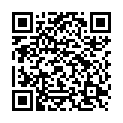|
|
|
| Module code: MST.MET |
|
1V+3PA (4 hours per week) |
|
5 |
| Semester: according to optional course list |
| Mandatory course: no |
Language of instruction:
German |
Assessment:
Project work
[updated 01.10.2020]
|
MTM.MET Mechatronics, Master, ASPO 01.04.2020
, optional course, technical
MST.MET Mechatronics and Sensor Technology, Master, ASPO 01.04.2016
, optional course, technical
MST.MET Mechatronics and Sensor Technology, Master, ASPO 01.10.2011
, optional course, technical
|
60 class hours (= 45 clock hours) over a 15-week period.
The total student study time is 150 hours (equivalent to 5 ECTS credits).
There are therefore 105 hours available for class preparation and follow-up work and exam preparation.
|
Recommended prerequisites (modules):
MST.LAS
[updated 10.10.2014]
|
Recommended as prerequisite for:
|
Module coordinator:
Prof. Dr. Martin Löffler-Mang |
Lecturer: Prof. Dr. Martin Löffler-Mang
[updated 07.10.2014]
|
Learning outcomes:
In the project we will build our own system according to customer requirements (cooperating companies in research projects). After successfully completing this course, students will be able to apply the methods they have learned and work independently in development projects, as well as carry out projects in interdisciplinary teams. We will focus on developing sensors for meteorological applications: weatherproof and UV-resistant, in use 24 hours a day and 7 days a week.
[updated 01.10.2020]
|
Module content:
Development of sensor technology for applications in meteorology, e.g:
Sunshine/rain sensor
Fog sensor
Inversion height detector
Snow spectrograph
Fine dust and wind sensor
[updated 01.10.2020]
|
Teaching methods/Media:
Introductory lecture
Independent project work in teams of 3-5 people
[updated 01.10.2020]
|
Recommended or required reading:
Jansen: Optoelektronik
Eichler: Laser
Young: Optik, Laser, Wellenleiter
Litfin: Technische Optik
Löffler-Mang: Optische Sensoren
Löffler-Mang: Handbuch Bauelemente der Optik
[updated 01.10.2020]
|


